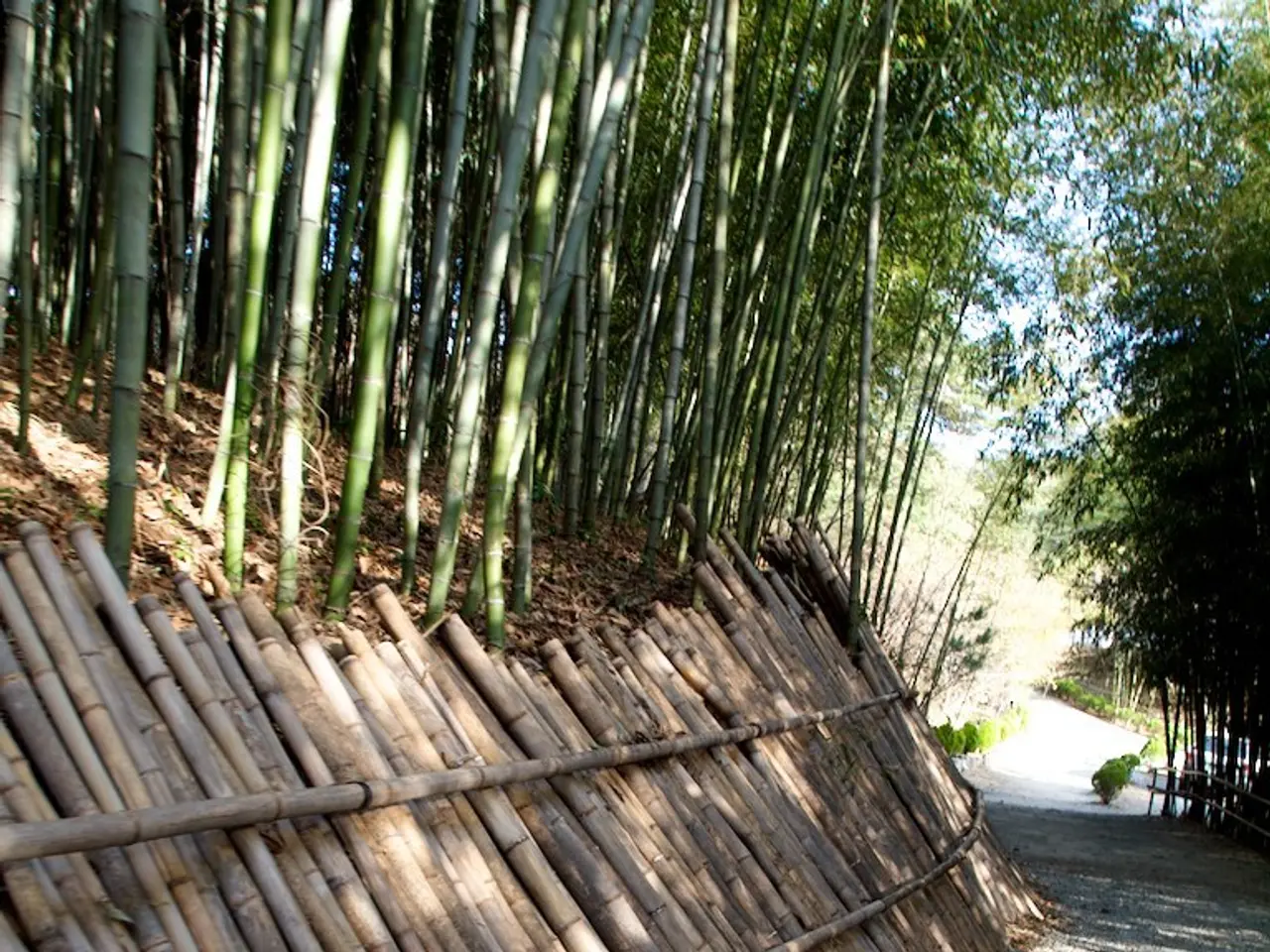Worried about bamboo encroaching on your UK garden or property? Obtain invaluable guidance from gardening and property experts regarding potential threats and precautions
In the world of gardening, bamboo is often praised for its fast growth and visual appeal. However, a garden designer, Sam Proctor, warns that without proper precautions, this seemingly harmless plant can become a significant problem for homeowners.
The root of the issue lies in the aggressive growth of bamboo roots. If left unchecked, these roots can cause subsidence, a condition where the ground beneath a home starts to sink. This can lead to cracks in walls, uneven floors, and even structural damage that can be costly to repair.
Removing an invasive bamboo plant can cost as much as £3,500 plus VAT. Worse still, types known as 'runners' can end up going under patios and into houses, making them very difficult to remove and requiring a digger and herbicide to eradicate.
John Davis, a construction expert and owner at Springfield Steel Buildings, advises avoiding bamboo altogether due to its maintenance requirements and potential for damage. He suggests alternatives such as layered planting of trees and shrubs, pleached trees like hornbeam, crabapple, lime, and beech, evergreen shrubs like Euonymus, Ilex, or Elaeagnus, climbers trained up fences and trellis, and exotic choices like Fatsia jaonica, x Fatshera lizei, or Eriobotrya japonica.
Rosemary Coldstream, another gardening expert, emphasises the need for caution even with non-invasive varieties of bamboo. She advises homeowners to avoid 'runners' such as Phyllostachys aurea, Pseudosasa japonica, and Phyllostachys Nigra due to their fast spreading growth. She also suggests safe alternatives like Fargesia Jiuzhaigou, Fargesia Nitida 'Volcano', and Fargesia Rufa.
The control of bamboo spread in gardens in the UK is generally managed as part of broader invasive species regulations. However, there are no specific UK laws that explicitly ban or restrict planting invasive bamboo species. Under the EU Regulation 1143/2014, which the UK previously aligned with, certain invasive species are controlled by prohibiting their import, sale, and release. Unfortunately, bamboo species are not specifically listed among these banned plants.
In addition to the structural damage, invasive bamboo can also damage drains, patios, and cavity walls, potentially impacting house sales. Moreover, it can wreak havoc on drainage systems as the roots can penetrate piping, causing blockages and cracks that can lead to leaks.
The potential issues with bamboo are becoming more widely talked about, and homebuyers are becoming more savvy. Before Japanese knotweed became Public Enemy Number One, it was sold in the UK as an ornamental plant. Similarly, invasive bamboo can push through brickwork and cause neighbor disputes, much like its notorious counterpart.
In light of these concerns, it's essential to use a root barrier for all bamboo plants, even if they're classed as less-invasive. Tough planters like steel options can be strong enough to contain bamboo, providing a solution for those who still wish to enjoy the plant's visual appeal.
In conclusion, while bamboo can provide major visual appeal, if not planted correctly, it can quickly become a problem for homeowners. It's crucial to consider the potential risks and take necessary precautions to prevent the issues associated with invasive bamboo.




